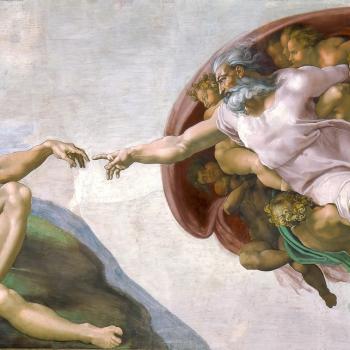Nearly a month ago we celebrated the birth of Jesus. At Christmas, our hearts are filled to bursting with love and affection for family and friends, generosity, a wish for peace toward all others, an abundance of patience and if not yet a realized dream, at least a desire and intention for reconciliation and forgiveness. It is a time of such sweetness and innocence for our young children and calls out to the loving heart of the child within each of us. So here we are, 27 days out, and I have to wonder, where are we with that peace today? Are our hearts still full? Or are we back to “business as usual”?
We live in difficult times. The last 27 days have been deeply challenging and the road ahead appears to be dominated by fear and anger. For many, many people in our world, this holy season was anything but the peaceful vision portrayed in the beloved hymn “Silent Night.” Often it feels as though the world is turned on its head. Yet, we all yearn for the calm and stillness of that “Silent Night,” when everything and everyone is resting full-bellied in warmth and safety. Isaiah prophesies that Jesus is “the Prince of Peace.” (Isaiah 9:6) But, what does Jesus tell and show us about the peace he brings?
Each Sunday around the world Catholic participants in Sunday Mass pause during the liturgy for “The Sign of Peace,” an opportunity to greet others in the church and share a wish for peace in that person’s life. We often look to each other and say, “Peace be with you” or “The peace of Christ be with you.” At the very least, one must assume in this exchange that the one who offers has in fact peace in his or her heart to give, and that anyone and everyone in the church is equally welcome to it. Beyond that, when we offer each other the Sign of Peace, what is it that we are offering, sharing, communicating?
To begin thinking about this, we must first consider what we mean by peace. Is it my hope that your pain is eased, your sorrow is lifted, your troubles resolved, that I hope God will protect you, that nothing bad will happen to you or to anyone you care about? Yet, we know that in life, troubles come and go with great regularity. If what one is asking for is the lessening of pain, hardship and difficulty, that troubles be taken away, we know that kind of peace – while a very welcome grace for which we are truly grateful– to be temporary, transitory, a reflection of the changing, evolving world in which we live. Through prayer and the love and support of friends and family, we persevere in the most difficult of times.
But what Jesus is offering is both more and different. He offers us a state of peace within from which to live, not one dictated by individual circumstances. In the Garden of Gethsemane, Jesus entreats his Father, “Abba, Father,” he says,“everything is possible for you. Take this cup from me. Yet not what I will, but what you will.” Mark 14:36 (NIV) Jesus knows the suffering that is ahead, but somehow he comes to terms with the certainty of that suffering and chooses to align himself with God’s will. Jesus uses his free will to choose God’s will. In choosing God’s will, Jesus then shifts his consciousness from his own suffering to offer compassion in response to the concerns and needs of others – Mary his mother, the good thief, his forgiveness of the soldiers and the crowd. Jesus expands his boundless love and forgiveness to embrace them all. In the midst of his greatest crisis, Jesus is at peace. He has achieved equanimity, a state of soul that knows no time, place or circumstance.
Jesus begins most of his appearances with these words, “Peace I leave with you; my peace I give you.” He goes on to say, “I do not give to you as the world gives. Do not let your hearts be troubled and do not be afraid.” (John 14:27) In effect, Jesus is saying, my peace is like nothing you have ever seen, or ever experienced. It is new. It is my gift to you, a new way of being, a new covenant. Jesus does not give as the world gives. He does not give and then take away. His peace is not something that comes and goes, but is one that is steady at its core, in both the joys and vicissitudes of life. “And the peace of God, which transcends all understanding, will guard your hearts and your minds in Christ Jesus.” (Philippians 4:7) His peace transcends the troubles of the world and abides within each of us, is alive at the center of our being, regardless of our shifting circumstances. It guards and protects our hearts and our minds, and keeps them steady. His peace transcends all understanding, because it comes not from the head. One does not reason oneself into peace – for it comes from the heart, the center of “knowing” that all is as it should be, and good or bad, we must look for the grace and love within it.
In the Sermon on the Mount we are told of the Beatitudes, the eight paths to God. One of these is the way of the peacemaker, “Blessed are the peacemakers, for they will be called children of God. (Matthew 5:9) As “children of God,” as “descendants” of God, the peacemakers carry the encoded DNA message of peace.
Jesus is referring here to an active peace. Its intent is to foster the spiritual evolution of ourselves and everyone and everything in our world. It is not passive. The work of this active peace is not just to eliminate difficulties and adversity, but to transform them in a way that transcends a way of thinking that is dominated and determined by the shifting circumstances of life. We are all seeking to grow in Spirit, to deepen our spirituality. To do this we go through stages of growth – raising our awareness, learning to understand the role of the ego, learning to regain and maintain our center and ultimately arriving at an abiding state of equanimity. Peace is a state of active, radical loving, not unlike Jesus’ example of forgiveness of the soldiers at the foot of the cross on Calvary. Active loving expresses itself as equanimity and is boundless in its potential.
How can we become peacemakers, peace creators? “Let the peace of Christ rule in your hearts, since as members of one body you were called to peace. And be thankful.” (Colossians 3:15) The scripture says we must acknowledge our oneness with all beings, accept our mission to bring peace, and, at all times, we must be thankful. Anchored in the vast ocean of consciousness, deep beneath the waves which constantly disturb the surface, we abide in the calm waters of Divine understanding, in awe, appreciation and protection of all life.
So, at the Sign of Peace, what are we offering each other? Perhaps we are offering each other this simple blessing: May Spirit find fertile ground and grow within you, may love support your steps, and may you have all the courage you will ever need to follow your path. The peace of Christ be with you all.













